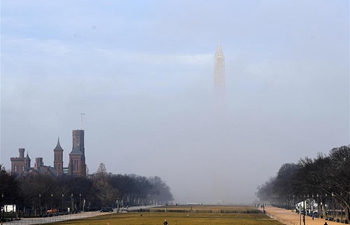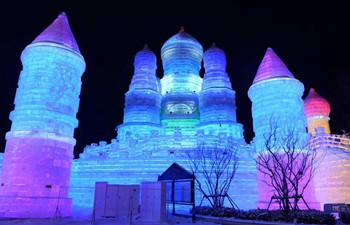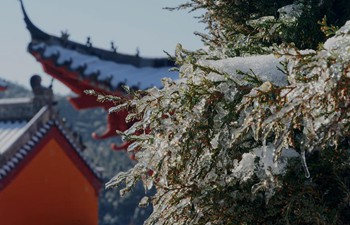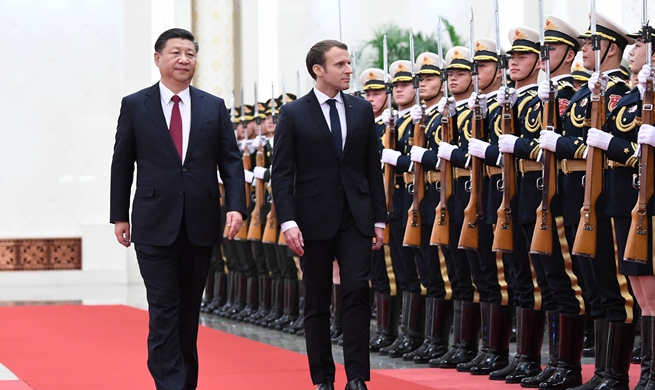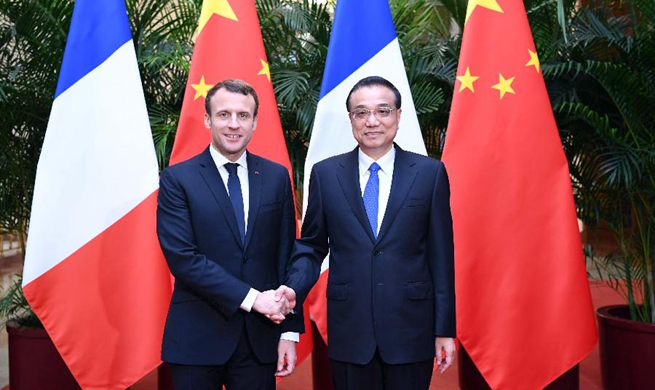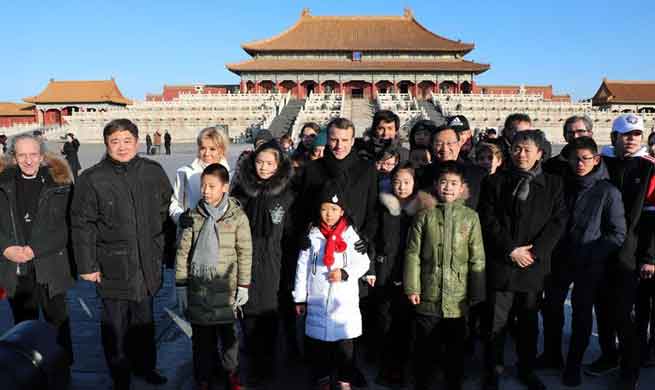SHANGHAI, Jan. 10 (Xinhua) -- The box office of the eighth installment of American Star Wars sci-fi franchise, "Star Wars: The Last Jedi" has taken about 220 million yuan (33.7 million U.S.dollars) by Wednesday afternoon since it was released in China last Friday.
Since it began in 1977, the franchise had not only influenced generations of western audiences, but also been witness to 40 years of reform and opening-up in the Chinese film industry.
During this time, China has become the world's second largest movie market, with its box office in 2017 topping 55.9 billion yuan. As the movie industry grew, China's domestic science fiction industry has also developed. Meanwhile, people's consumption diversified, and imaginations grew.
The first Star Wars trilogy created by American filmmaker George Lucas was released over the late 1970s and early 1980s, depicting Luke Skywalker, Princess Leia and other characters having adventures "in a galaxy far, far away." The movies were hugely successful, soon becoming a worldwide culture phenomenon.
In January 1979, a Xinhua News report said that Beijing Film Studio's magazine "Movie Creation" would resume publication and would publish Lao She's adapted screenplay of "Rickshaw Boy" in a series, as well as the cinematic novel of the American blockbuster Star Wars.
Coincidentally, China's domestic science fiction industry began to come to fruition in the early 1980s, with the emergence of literature depicting the space world in the 21st Century. Young people began to enjoy reading, writing and drawing science fiction.
During the 1980s, with the Cold War as a backdrop, Star Wars became a political buzzword, sometimes used to refer to the arms race between the United States and the Soviet Union.
Star Wars during this time had not been released to the Chinese public, and had only been showed on a small scale as a cultural exchange activity.
Star Wars fan Song Xuewen was born in the 1970s and remembers the story of Luke and Leia being used as English learning material in his boyhood. He even gave himself the English name Luke to make him sound like a space hero.
In 1993, China's film industry began to explore ways to reform, and in 1994 China imported its first Hollywood movie "the Fugitive," and China's film industry strived to find ways to reform and open-up.
Lucasfilm's Star Wars franchise, after several quiet years, released the first film in its second trilogy in 1999.
The 1999 "Star Wars: The Phantom Menace" became the first Star Wars movie officially shown on China's big screens.
It is also the time when China's sci-fi writer Liu Cixin began to consider writing his science fiction trilogy, "The Three-Body Problem." Liu took nearly 10 years to complete the books after having the first idea.
When the English version of "The Three-Body Problem" won the Hugo Award for Best Novel, the highest honor for sci-fi works, it was compared to the Star Wars saga.
Today, George Lucas's epic sci-fi franchise ranks as the world's second highest-grossing film franchise in history, behind the Marvel Universe. It has generated billions of dollars from a host of merchandise and spin-offs, including novels, cartoons, toys, games and theme parks.
When Disney purchased Lucusfilm in 2012, many projections from the earliest Star Wars movies had become a reality. For example, the holographic imaging technique used in space communication has become today's technologies of Augmented Reality and Virtual Reality.
At the premiere ceremony for "Star Wars: The Last Jedi" on the Chinese market in Shanghai at the end of 2017, fans cheered when they saw the classic Star Wars characters including Luke and Leia through holographic images.
Jiang Xiaoyuan, a science history and professor at Shanghai Jiaotong University, believes the Star Wars franchise is undoubtedly a milestone in the world's sci-fi movie history. Meanwhile, China's sci-fi novels and movies still have a long way to catch up.
"We have to accept the gap, but we should be confident," Jiang said. "Someday, China will have its own milestone sci-fi movies."





